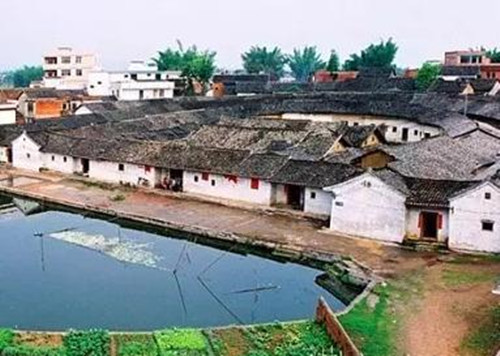Meizhou, capital of Hakka culture
Located in the northeast of Guangdong province, Meizhou is known as the unofficial capital of Hakka culture.
Hakka is a nomadic branch of the Han ethnic group. They used to live in northern China and migrated south to avoid social unrest and upheavals from war and famine, beginning in the Jin Dynasty (AD 265-420). While inhabiting together with other ethnic groups, they use a traditional Hakka dialect that is phonetically similar to Cantonese. Meizhou is one of the cities most populated by Hakka people.
Perhaps the most distinctive characteristic preserved in Meizhou is the Weilongwu, a type of walled village. Weilongwu include two parts, a semicircular fishing pond at the front of the village which is mirrored by a semicircle of residential area behind. Hakka walled villages served many functions including agricultural production, living, defense and security. With the passage of time, many Hakka walled villages have disappeared. Yet, a few dozen surviving ones have stood witness to history and have become a heritage of the city.
In addition to Hakka culture, Meizhou is also famous for its ballads. The Ballad of Meizhou is generally thought to have been formed during the Song Dynasty (960-1279 AD). It is a mixture of local and Hakka culture whose lyrics are similar to ancient Chinese poetry. Passed down through oral history, most of the ballads deal with the theme of love.
Meizhou is less famous for its food, which is overshadowed by the world-renowned Cantonese cuisine, although it does have several well-known staples. Among these are salt-baked chicken, meat stuffed tofu, preserved beef, and candied ginger. It is also rich in Dancong Oolong tea, a family of thin strip-style oolong teas from Guangdong province.
Attractions: Lingguang Temple, Thousand Buddha Temple Pagoda, Yannanfei Tea Garden and Pingshan Terrace
|
|
|
Weilongwu, a preserved Hakka walled villages in Meizhou. [Photo/Nanfang Daily] |



 Print
Print Mail
Mail


